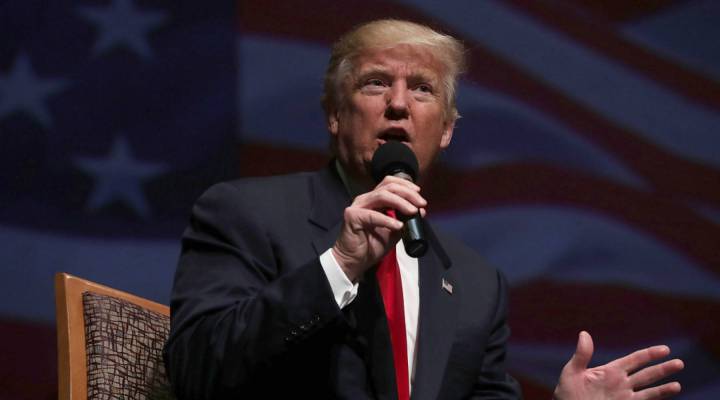
Wall Street economists: Trump presidency could trigger recession
Wall Street economists: Trump presidency could trigger recession

Today Citigroup is out with its latest national election forecast, and it has upped the Republican candidate’s chances of winning from 35 percent to 40 percent since last month. The odds are still for Democrat Hillary Clinton, but Citigroup economists have actually been issuing repeated warnings that they believe a Donald Trump presidency could trigger a recession.
The most immediate threat would be that of uncertainty: Markets don’t like uncertainty, and Trump brings a lot of it. The longer-term threat from many economists’ viewpoints is Trump’s dislike for free trade and interest in protectionism and high tariffs, which puts him at odds with a lot of Wall Streeters.
Economists beyond Wall Street have also sounded the alarm about Trump. An August survey found only 14 percent of business economists thought Trump would be the best choice to manage the U.S. economy (Gary Johnson snuck in above Trump at 15 percent, while 55 percent chose Hillary Clinton).
And on Monday the Peterson Institute for International Economics, which is a trade-friendly D.C. think tank, put out an analysis of both candidates’ policies that found Trump’s trade proposals, if fully enacted, would push the U.S. into a recession. The institute predicts nearly 5 million job losses, with manufacturing and mining jobs hit the hardest. An analysis last week by British research firm Oxford Economics predicted a $1 trillion loss to the U.S. economy if a combination of Trump’s policies is enacted.
On the other hand, a Morgan Stanley note last week observed that if Trump is elected and there’s a Republican Congress, some tax reforms might actually get passed. Morgan Stanley analysts have said that historically, who is president has not been the most important factor for markets.
That said, many of these models assume his policies and proposals would actually be enacted. Trump’s economic plans have been criticized repeatedly for lacking detail. And even economists sympathetic to some of Trump’s goals say, barring a miracle, his plan for job growth is unrealistic.
Marketplace reached out to Donald Trump’s campaign for a response, and we have not received a reply.
There’s a lot happening in the world. Through it all, Marketplace is here for you.
You rely on Marketplace to break down the world’s events and tell you how it affects you in a fact-based, approachable way. We rely on your financial support to keep making that possible.
Your donation today powers the independent journalism that you rely on. For just $5/month, you can help sustain Marketplace so we can keep reporting on the things that matter to you.












